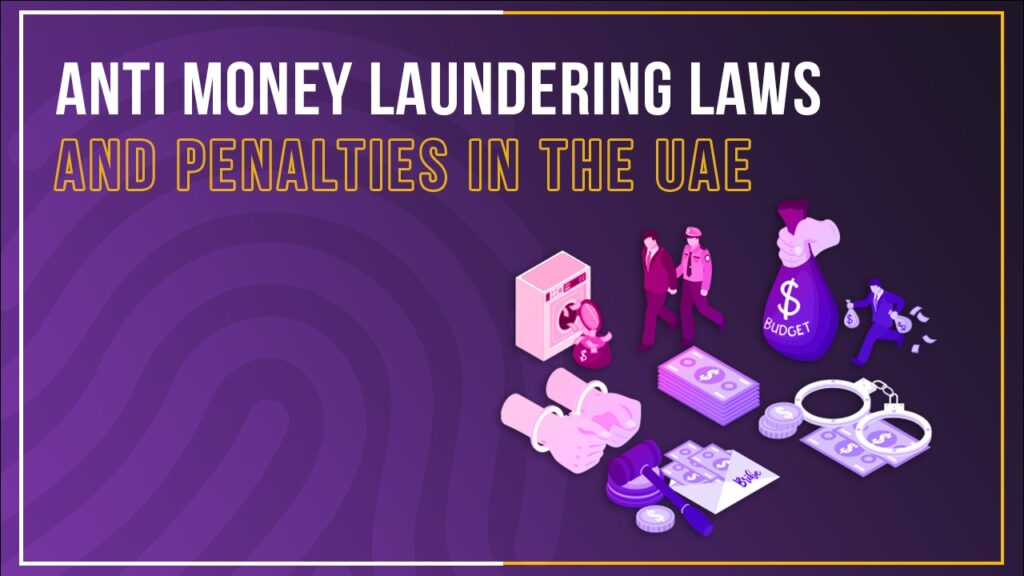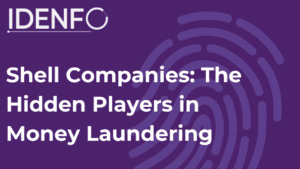Major offences like money laundering and terrorism funding jeopardise the harmony, safeguards, and protection of companies as well as the community at large. Strong anti-money laundering (AML) regulations that safeguard the financial system and uphold economic stability have been put in place by the UAE government to counter these risks. To improve the UAE's capacity to identify and stop financial crimes more successfully, the AML Law was passed in accordance with the rules established by the Financial Action Task Force (FATF). This blog will discuss the most recent AML rules in the United Arab Emirates, their consequences for violations, and how they protect the reliability of the country's financial industry.
Key Provisions of the UAE Anti-Money Laundering Law and Terrorism Financing
Federal Decretal-Law No. (20) of 2018 on AML, Countering the Financing of Terrorism (CFT), and Combating Illegal Organisations governs the UAE's anti-money laundering (AML) legislation. Clause (1) of Article (2) states that money laundering occurs when someone knowingly participates in any of the following actions while knowing that the cash are the outcome of a criminal offence or misdemeanour:
– Engaging in dealings, such as shifting or transmitting money, with the intention of hiding or disguising their illicit source.
– Disguising the actual origin, location, type, or custody of the revenues, as well as their transfer, use, or associated rights.
– Purchasing, holding, or utilising the money once it has been received.
– Helping the offender avoid penalties for the underlying offence.
Because money laundering is regarded as a separate misconduct, the offender of the initial offence (the underlying offence) is still subject to penalty for money laundering. Furthermore, proving the funds' illicit source is not required in order to bring charges against the offender. The financing of terrorism is also illegal under Federal Law No. (3) of 1987 and Federal Law No. (7) of 2014, specifically Article (3). Financing terrorism is committed by anyone who willfully participates in the following activities:
– Performing any of the crimes specified in Clause (1) of Article (2) of the Decretal Law, even if there is no intention to conceal the funds' illegal source, if they are aware that the proceeds belong to or are used to finance a terrorist organisation, individual, or terrorist act.
– Giving, gathering, preparing, obtaining, or assisting in the acquisition of proceeds with the knowledge that they would be used for terrorist activities, or acting on behalf of a terrorist organisation or individual while being aware of their real character.
Responsibilities of Organisations in Combating Money Laundering in the UAE
Organisations must abide by strict anti-money laundering (AML) laws and regulations that are implemented by the appropriate government agencies in order to successfully fight money laundering in the United Arab Emirates. These regulations guarantee adherence to the nation's legal structure and assist consumers and businesses in identifying financial fraud in their operations.
According to Article (32) of the Decretal-Law, financial institutions are responsible for making sure that their majority-owned subsidiaries and overseas branches implement AML and countering the funding of terrorism (CFT) policies that comply with UAE laws. Financial institutions must make sure that UAE standards are followed to the extent that the laws of the foreign nation allow if the crime-fighting regulations there are less strict than those in the UAE.
Financial institutions must take extra precautions to manage and reduce the risks involved when foreign rules prevent the appropriate application of AML/CFT procedures in accordance with UAE norms. In order to guarantee compliance and lower exposure to AML/CFT risks in overseas activities, they must additionally notify supervisory bodies in the United Arab Emirates and adhere to any further instructions given.
Updated Penalty Structure Under the New AML Law in the UAE
A harsher punitive structure has been adopted by the UAE's new Anti-Money Laundering (AML) Law, which imposes harsher penalties on both people and institutions engaged in money laundering offences. The following significant modifications to penalties are outlined in Article 13(1) of the New AML Law:
Increased Jail Sentences: Under the previous law, people convicted of AML offences may spend up to seven years behind bars; under the new law, this can go up to ten years.
Greater Penalties: Personal penalties have also gone up from AED 30,000 to AED 300,000 to AED 100,000 to AED 500,000.
The recent legislation offers complainants rewards as well. If a whistleblower's disclosure results in the identification of other criminals, the magistrate may relieve them from punishment if many culprits have been caught in the same AML or CTF offence. Financial firms are now subject to much harsher fines under Article 14. The penalties for violations have significantly increased, with institutions found guilty of AML infractions now facing fines ranging from AED 300,000 to AED 1 million per offence.
How AML Platforms Like Idenfo Direct Help Prevent Penalties
Organisations must develop thorough AML screening and enforcement processes in order to avoid significant fines and legal repercussions, especially in light of the UAE's new AML Law’s harsher penalties. In order for organisations to comply with these regulations and safeguard themselves against possible infractions, AML systems such as Idenfo Direct are essential. Idenfo Direct provides sophisticated AML screening solutions that enable companies to effectively track transactions, authenticate clients, and carry out exhaustive due diligence. Idenfo Direct makes sure that high-risk individuals and businesses are identified before they have a chance to endanger the financial system by automatically screening against databases of politically exposed persons (PEPs), worldwide sanctions lists, and negative media sources. Visit the website to find out more: http://mena.idenfodirect.com/
It is more important than ever to ensure strong adherence with the UAE's ever-more strict anti-money laundering rules. The increased sanctions for both people and organisations highlight how crucial it is to have strong AML policies in place. Businesses may use AML platforms like Idenfo Direct to detect suspicious behaviour, manage complicated rules, and safeguard themselves against the monetary and reputational harm that results from failure to comply. Organisations may protect their operations in the quickly changing regulatory environment of today and keep ahead of financial crime risks by implementing complete AML solutions.









